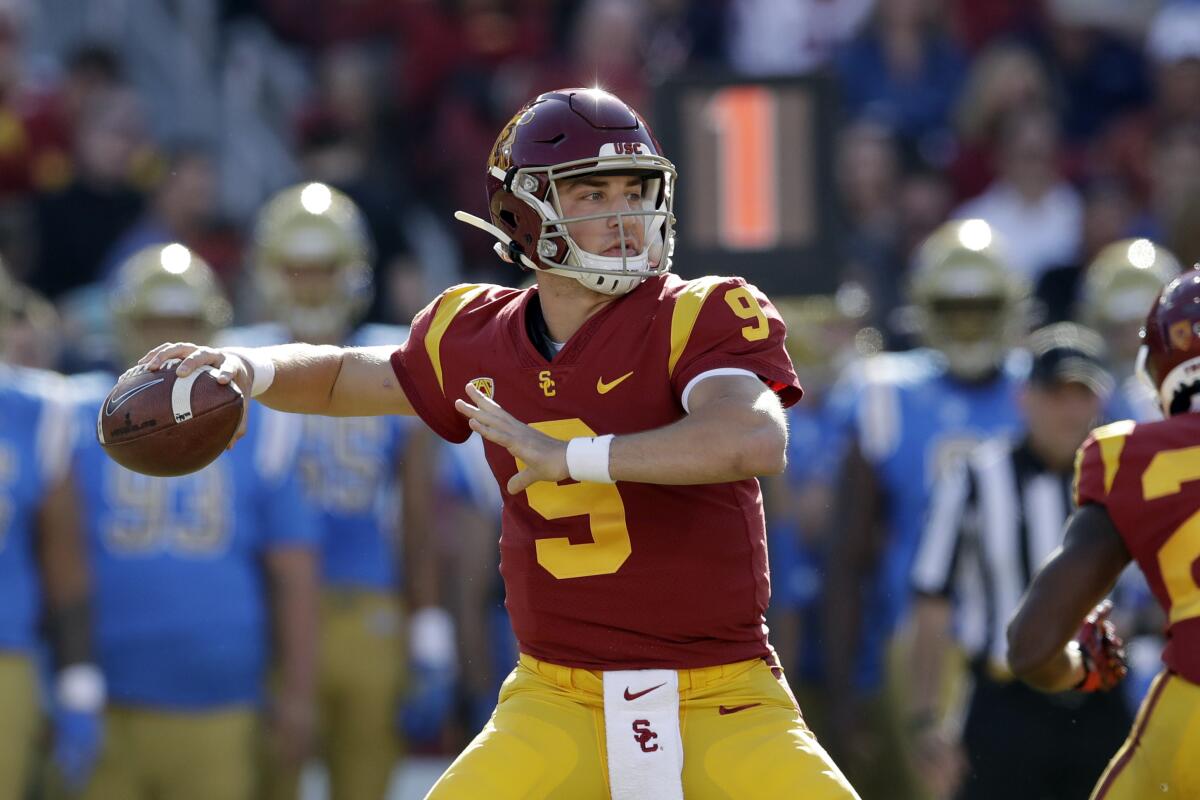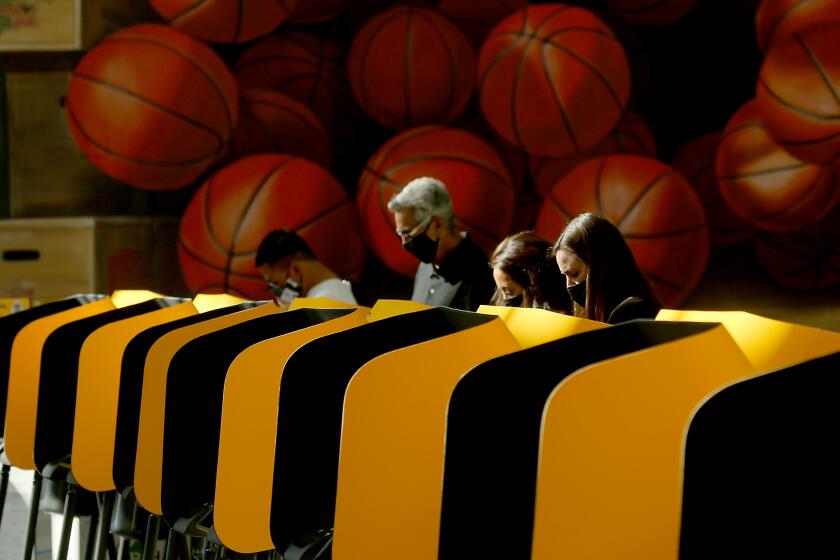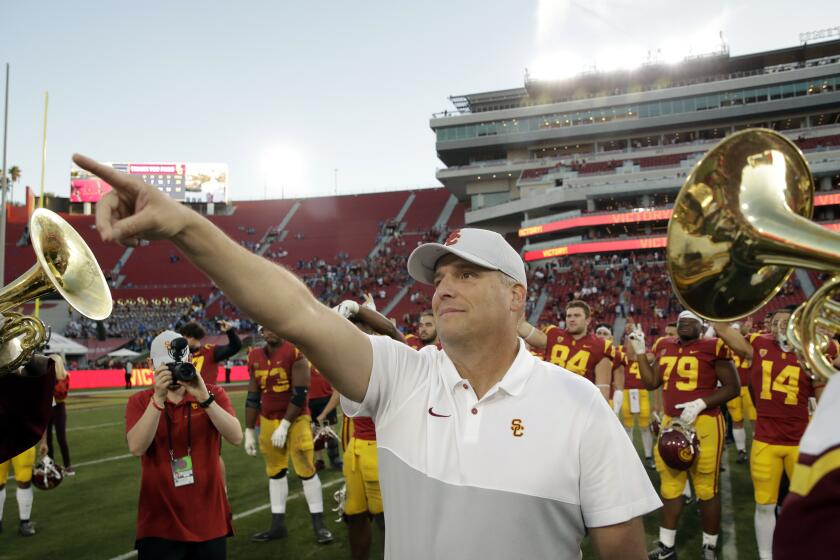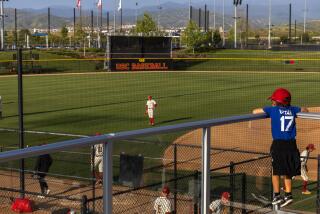USC football players prepare for Arizona State, all set for election

- Share via
It was their September letter to Gov. Gavin Newsom that helped inject urgency into the Pac-12’s return to football. Before that, another letter, brought about by an All-American hurdler, coaxed its athletic department to proactively address issues of racial inequality.
During a summer of unprecedented activism among college athletes, Trojans have often willingly taken the lead by marching in protests, calling for change on social media, and embracing the power of their platforms.
But inside the USC locker room, in the final lead-up to Tuesday’s presidential election, the focus has been less on politics and more on the long-awaited start of the Pac-12 football season Saturday.
“I haven’t really noticed that much of a difference,” quarterback Kedon Slovis said Monday morning. “When it comes to things like writing a letter to Gavin Newsom and things of that sort, you realize that we have more power in our voice than we might’ve realized. But in terms of the presidential election, it’s not something we talk about a whole lot or has impacted us other than not having practice on Tuesday.”
The Lakers are working on an effort to address social inequality as part of a six-step plan that goes beyond using Staples Center as a polling venue.
An election off day is a first for college athletics. The NCAA Division I Council passed a measure in September barring athletic activities on the first Tuesday of November to allow athletes a chance to cast their ballots on election day.
USC athletic director Mike Bohn had already preempted that move a month earlier, as part of a larger initiative to encourage athletes to vote. Galen Center, the Trojans’ basketball arena, was turned into a voting site, while USC athletes welcomed RISE, a non-profit focused on racial injustice, to speak with athletes about registering to vote and what’s on the ballot.
USC teams challenged each other over Twitter to register their entire rosters. USC tweeted on Monday that 95% of its athletes had registered to vote, while 20 of 21 teams were fully registered.
“In my 26 years of college football coaching, [this year] there seems to be the most engagement from young people,” USC coach Clay Helton said. “I think from an athletic administration and our coaching staff standpoint, we’ve really brought it forth and our players have brought it forth.”
Across the country, young voters have made their voices heard. As of last Wednesday, more than 7 million voters ages 18 to 29 had cast their ballots, according to the Center for Information and Research on Civic Learning and Engagement at Tufts University.
College athletes have promised to seize their place in that electorate. For USC football, that means dividing their focus between the future of the nation and Arizona State.
“Obviously, it’s nice to have Tuesday off and vote and make a difference in our country,” Amon-ra St. Brown said, “but we’re mainly focused on ASU.”
The Trojans ended last season on a whimper, but so many things since have gone right for Clay Helton, who needs to translate that into a big season.
A full stable
Offensive coordinator Graham Harrell didn’t get many chances to see his full, four-man backfield in action last season. By last November, he had just one healthy scholarship back to carry the load.
USC’s backfield has been short-handed through camp, with Markese Stepp (turf toe) and Vavae Malepeai (hamstring) both still dealing with injuries. But on Monday, Helton said that he expects at least Stepp to return, as he shakes off the injury he picked up recently.
A full stable of backs, Harrell said, could take USC’s offense to another level in Year 2 under his watch.
“Anytime anyone runs anything like this offense, when the run game’s been established, when they’ve been able to run the ball effectively, they have much better seasons,” Harrell said. “When all four of those running backs are healthy we’re bringing a different look at them every time, and I think it’s going to help the run game.”
More to Read
Go beyond the scoreboard
Get the latest on L.A.'s teams in the daily Sports Report newsletter.
You may occasionally receive promotional content from the Los Angeles Times.









